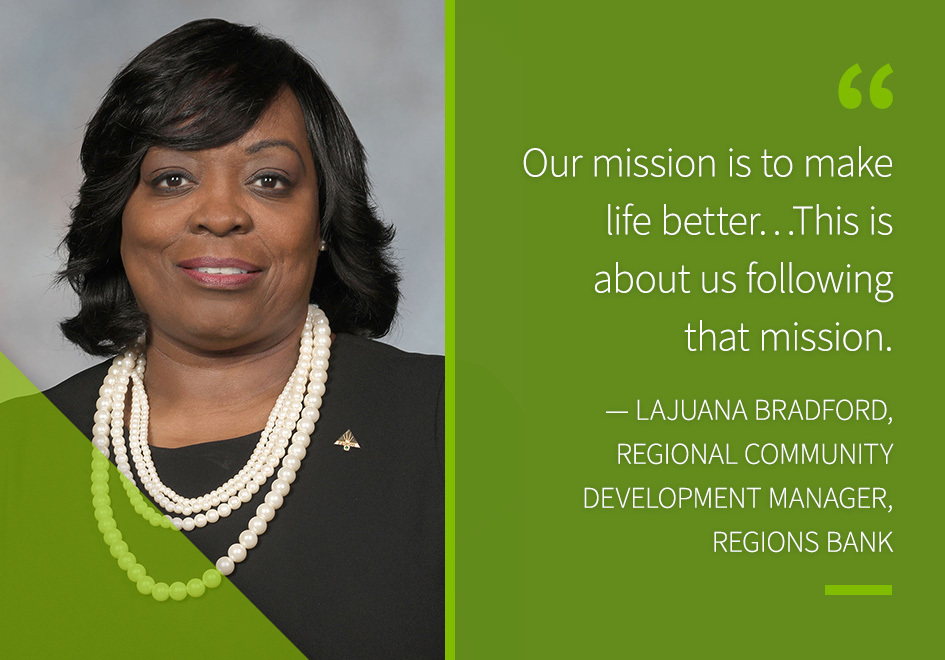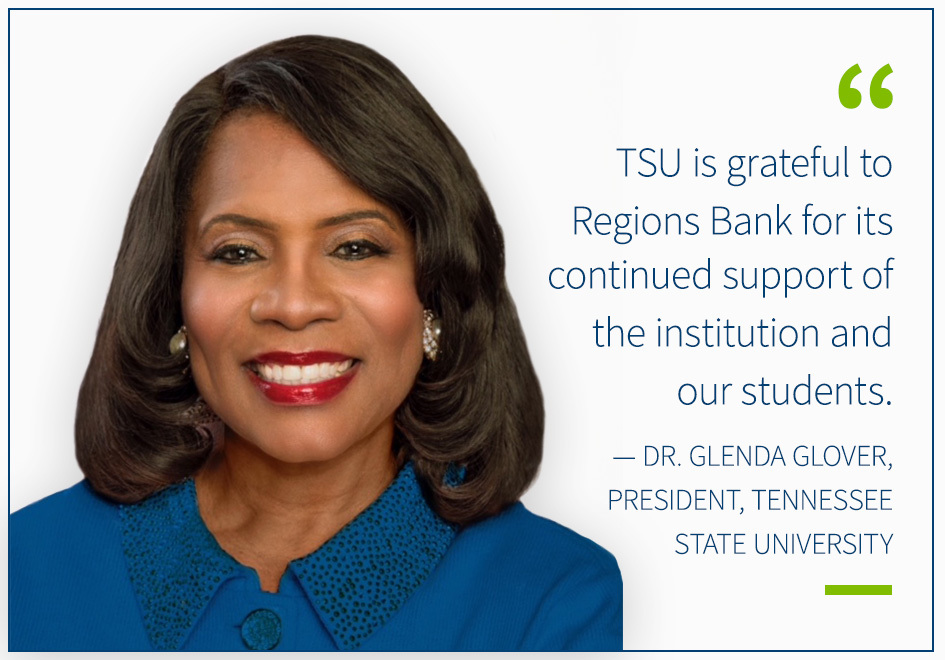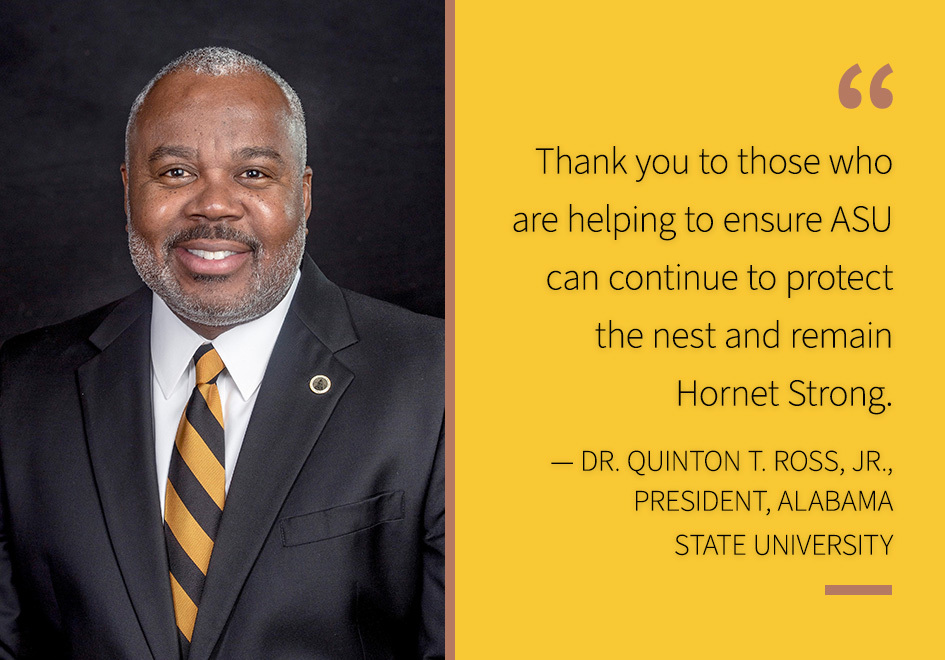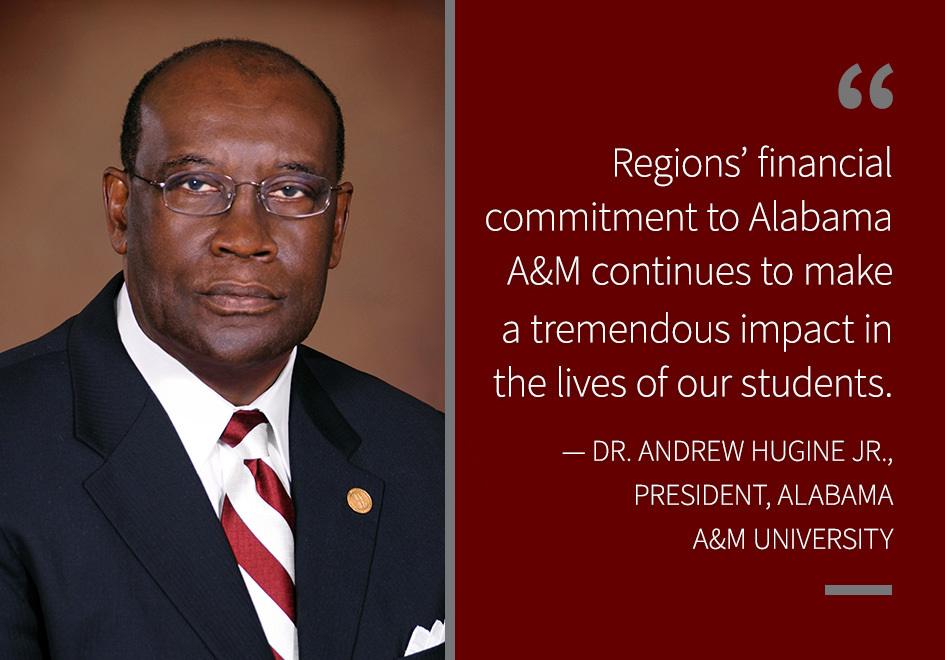The need to do more – to go further – was clear.
For years, Regions Bank has supported Historically Black Colleges and Universities (HBCUs). For years, teams from Regions have been on campus, working with students and administrators, delivering financial education, and serving through volunteerism. For years, these teams have been building a strong community connection.
This year, that connection is reaching students in a new way. Because this is the year that so much has changed.
It began with COVID-19. In the midst of the pandemic, the nation is also, once again, grieving the loss of black men and women killed in a series of racial injustices. Given all that’s happened in 2020, the need for a support network – for access to peers, to leaders, to people who can uplift each other – has perhaps never been greater.
“Conversations revealed the need,” said Lajuana Bradford, Regional Community Development Manager for Regions in Birmingham, reflecting on initial work that began earlier this year. “We were already preparing to grow our work with HBCUs before the pandemic, and we were meeting with schools and discussing opportunities. Then, as COVID-19 hit, we stepped back and said, ‘What are the most urgent needs – right now?’”

“The first priority we were told at the time was student emergency funds,” added Latrisha Jemison, Regions’ Regional Community Development Manager in Nashville. “Students needed to get home. So the first thing we did was shift to emergency funds to help students get to a place where they could be stable. The second step was shifting our support from activities on campus to helping these students get settled so they can continue their education.”
Indeed, classes can continue in a virtual format. The challenge, though, is having the technology to participate.
“Having a phone is one thing. Having a computer to do your work is another,” Jemison explained. “Students need computers or laptops where they can write their papers, create spreadsheets, and build on their educational training. They can’t do all of that on a phone. And for now, they can’t go to the library or the residence hall and access their school’s computer networks like they used to.”
There’s also the issue of access. WiFi is taken for granted by many. But not by students whose homes aren’t connected.

“Some schools have had to return to printing and mailing items to students for them to do their work,” said Bradford. “For some families, there’s only one computer for a whole household, and all the students have to share it to do their work.”
With the needs identified, it was time for action. In May, Regions issued a series of grants to several HBCUs. The grants were structured in a way that enables schools to allocate funding toward various timely needs, from expanded digital access to instructional services, to other areas where universities are serving their student bodies and communities.
Tennessee State University is among those receiving a grant. Already, the school had been buying laptops and tablets for students to connect with instructors and build on their studies through online courses after COVID-19 prompted university campuses worldwide to close. The Regions grant will support additional technology purchases for TSU students.
“TSU is grateful to Regions Bank for its continued support of the institution and our students,” said Dr. Glenda Glover, President of Tennessee State University. “We committed to students that the University would ensure the quality of student learning and their academic success during our transition to online instruction because of COVID-19. This gift from Regions helps us keep that promise by using the funds to provide much-needed devices for students as we prepare for the fall.”

TSU junior Joyvon Dickerson, a human performance and sports science major from Chicago, said she is grateful for the laptop the university gave her.
“It’s kind of hard trying to write a five-page paper off your phone,” Dickerson said. “It’s nice to be at a school that cares about its students in this way.”
About five hours south, at Alabama State University, students, faculty – everyone in the university family – are all part of what ASU calls “The Nest.” There’s immense pride and tradition among the Hornet Nation.
And the response to the pandemic – to “protect the nest,” as school leaders described, has been comprehensive.
“Since the pandemic began, ASU students have been faced with numerous obstacles, such as access to reliable technology needs, food insecurity, transportation, shelter, and direct impacts of the virus on the health and employment status of their family members and more,” said University President Dr. Quinton T. Ross Jr. “This generous donation will assist us not only in providing support to our ‘nest,’ but also in continuing prevention and recovery initiatives within the community, such as our campus-based coronavirus testing site, relocation of Montgomery’s unemployment office to the ASU campus and overcoming barriers to educational success.”

A few hours back toward the north, at Alabama A&M University in Huntsville, a Regions grant will support the university’s Hope for Tomorrow Fund. The fund was initially set up after a series of devastating tornadoes tore through the state in 2011. In 2020, the fund is helping students experiencing hardships due to COVID-19.
“Alabama A&M University is thankful for the long-term community partnership with Regions,” said University President Dr. Andrew Hugine Jr. “Regions’ financial commitment to Alabama A&M continues to make a tremendous impact in the lives of our students.”

And that’s what this is about. Impacting lives.
The pandemic. A nation in crisis. This isn’t just a hard time. It’s painful. But it can also, hopefully, serve as a turning point – a time when more people and more institutions come together in solidarity.
Because for students at TSU, ASU, Alabama A&M, and other universities across the country, there remains a hope – and a promise – for a brighter future.
It is the hope of Regions Bank that students will benefit not only from these financial grants to support education, but also from the broader connection Regions has with each university.
“These colleges and universities are longstanding community partners of Regions,” Bradford said. “These are not relationships that just began. Rather, it’s the next step in building on our relationships. Our mission is to make life better for the communities we serve. This is about us following that mission.”
And as students work through an extremely difficult time, there is a word of advice – and encouragement.
“My message to students is this: Remember the long-term goals you had when you entered school to pursue a degree,” Jemison said. “Those goals are still attainable. If you stay focused on what you need to do, you’ll meet your objectives.”
